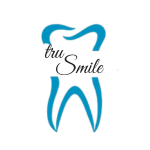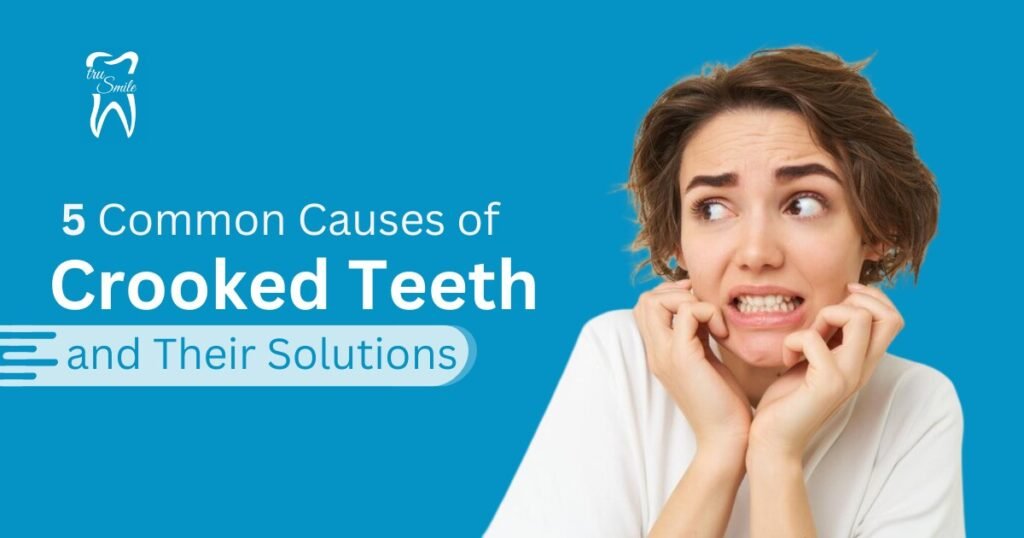A healthy smile improves your confidence and supports your overall dental health. Crooked teeth can make you feel less confident and lead to problems like chewing difficulty or poor oral hygiene. Experts agree that addressing these issues early helps prevent long-term complications.
Crooked teeth result from various causes, but effective solutions exist for every case. Have you noticed issues like gaps or misalignment in your teeth?
This article will explain common causes of crooked teeth and provide practical solutions to restore your smile.
What Are Crooked Teeth?
Crooked teeth refer to misaligned teeth, which may include gaps, overlaps, or improper positioning. A variety of factors, including genetic traits and childhood habits, can contribute to this issue. Misaligned teeth can cause challenges like difficulty in chewing food or maintaining oral hygiene. This may lead to more serious dental problems if left untreated.
Several signs may indicate crooked teeth, such as difficulty cleaning between them or speech-related challenges. These problems often worsen over time, affecting your daily activities. Identifying these signs early allows you to explore treatment options promptly.
Common Causes of Crooked Teeth
Genetics
Your family history greatly influences your dental alignment. A parent or grandparent with misaligned teeth may pass this trait to you. This inherited characteristic often affects the shape of your jaw or the size of your teeth. Early detection helps reduce the impact on your dental health.
Have you noticed similar alignment issues in your family? Seeking professional advice early can help prevent future complications and give you a healthier smile.
Dentists can assess genetic influences during regular checkups and suggest appropriate care. If alignment issues are identified early, preventive measures such as retainers might be recommended. These solutions reduce the severity of misalignment as your teeth develop.
Prolonged Childhood Habits
Childhood habits like thumb sucking and pacifier use often impact teeth alignment. These actions apply consistent pressure, leading to gaps or misaligned front teeth. Over time, such habits cause noticeable changes in the way your teeth grow.
Addressing these habits during early childhood can help prevent severe misalignment. Simple interventions, like using dental-friendly pacifiers, can make a big difference. Consulting a pediatric dentist ensures you receive the best guidance for your child.
If your child still practices these habits, what steps can you take? Monitoring their behavior and encouraging healthy habits can positively influence their dental development.
Poor Oral Habits
Habits such as breathing through your mouth or chewing improperly can affect how your teeth align. These habits exert unnatural pressure on teeth, leading to issues like crowding or gaps. Over time, this can result in noticeable changes in alignment.
A dental professional can estimate the impact of these habits and suggest corrective measures. Regular dental visits also provide opportunities to detect such problems early. Addressing these issues prevents long-term misalignment and improves overall oral health.
Misaligned Jaw (Malocclusion)
A jaw that is too small can cause crowding in your teeth. An unevenly shaped jaw might result in alignment issues like overbites, underbites, or crossbites. These problems can affect how your teeth fit together and cause discomfort.
Untreated jaw misalignment may lead to worsening dental issues. Crowding often makes it harder to clean teeth, increasing the risk of cavities or gum problems. Have you noticed any discomfort while chewing? A dentist can diagnose these issues and suggest effective solutions.
Early Loss of Baby Teeth or Trauma
Baby teeth are like placeholders for your permanent teeth. Losing them too early can mess up how the new teeth grow. This often leads to crooked teeth or gaps that make chewing harder.
Teeth around the gap start moving when a baby tooth falls out before its time. Injuries or accidents can also cause this kind of misalignment.
Solutions for Crooked Teeth
Braces or Aligners
Braces and aligners remain popular solutions for straightening teeth. These devices work by applying steady pressure, gradually shifting teeth into proper alignment. A dentist or orthodontist can recommend the best option based on your specific needs.
Aligners provide a discreet alternative to traditional braces, making them ideal for adults. They also allow easier cleaning compared to metal braces. Regular adjustments ensure that your treatment progresses smoothly.
Early Dental Checkups
Regular checkups play a vital role in identifying alignment issues before they worsen. A dentist can monitor your child’s dental growth and recommend early interventions if needed. Addressing alignment problems early reduces the need for complex treatments later.
Parents should prioritize routine dental visits, especially when their child begins losing baby teeth. These visits help track dental development and identify potential risks. Early action often leads to quicker and less expensive solutions.
Jaw Surgery (For Severe Cases)
Dentists may recommend surgery when jaw misalignment becomes severe. This option helps fix problems that braces or aligners cannot solve. A surgeon carefully adjusts the jaw to improve alignment and functionality.
Recovery after jaw surgery usually takes time but leads to better results. Severe misalignments that cause pain or difficulty chewing improve significantly after treatment.
Good Oral Hygiene Practices
Dentists often recommend using fluoride toothpaste and soft-bristled brushes for optimal cleaning. Regularly replacing your toothbrush also improves your oral hygiene. Adding a mouthwash to your routine provides extra protection for your teeth.
Daily dental care prevents further misalignment by keeping teeth strong and healthy. Brushing and flossing help eliminate plaque, which can worsen existing alignment problems. A proper routine also reduces the risk of gum disease and cavities.
Consulting Orthodontists
You deserve a confident smile, and orthodontists can help you achieve it. These professionals know how to handle crooked teeth and give you the right solutions. Their expertise makes the treatment process smooth and effective.
A personalized plan can make all the difference in your treatment journey. Orthodontists recommend braces or aligners that fit your lifestyle. Have you talked to an orthodontist about your options? Getting their advice could make your dental goals much easier to reach.
Conclusion
Crooked teeth impact both appearance and oral health. Effective treatment options improve your smile and prevent related issues. Dental professionals evaluate your condition and recommend the most suitable solutions.
Early treatment ensures better results and reduces the risk of further complications. Have you consulted a dental expert about this issue? Visit True Smile today to access professional care and achieve a confident, healthy smile.

